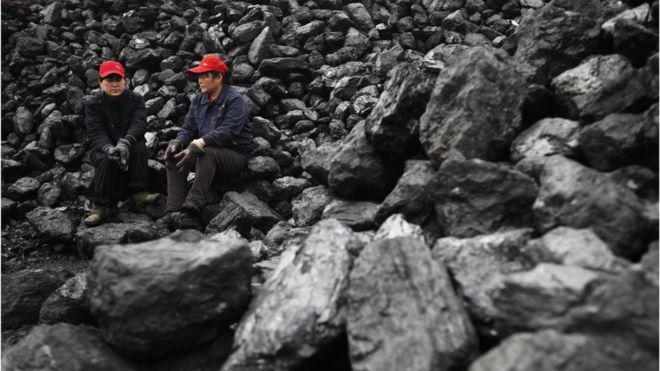The main factor in the near 3% rise has been coal use in China, driven by government efforts to boost a flagging economy.
But emissions from cars, truck and planes using fossil fuels continue to rise in all parts of the world
Renewables have also grown this year, but are not keeping pace with the CO2 rise.
The research, carried out by the Global Carbon Project (GCP), says that this year's "strong" rise is projected to be 2.7%.
That's much bigger than 2017's 1.6%. This will worry scientists as they had seen CO2 emissions relatively flat for the three years before.
So what's caused the rise?
While coal use remains below the historically high level of 2013, it has grown again this year. China, the world's largest emitter saw emissions rise an estimated 4.7%.
At UN climate talks in Katowice, the lead researcher Prof Corinne Le Quéré, from the University of East Anglia, told BBC News that the rise in China was down to government activity.
"For the past two years, the Chinese government has boosted the economy and the economy is based on construction and heavy industry, coal and steel. When you boost the economy you actually see a rise in emissions," she said.
Other factors include a rise in the US after several years of decline, which the researchers say is due to a very cold winter and a hot summer driving up demand for energy.
Who are the biggest emitters?
2018's top ten has China on top, followed by the US and the EU as a whole region. After these three come India, Russia, Japan, Germany, Iran, Saudi Arabia, South Korea and Canada.
A booming economy has seen India's emissions grow by 6.3%. Renewables are growing fast but from a low base.
The five countries contributing most to growth in global emissions outside of China, the US, the EU and India over the last decade are Saudi Arabia, Iran, Turkey, Iraq and South Korea.
What's happening with cars?
One common factor across rich and poor countries alike has been the continued rise in the consumption of oil in the transport sector. In the EU, the amount of fuel used for flights and road transport has surged by 4%. In US, use of coal actually fell while fossil fuels used in car journeys rose by 1.4%.
"Apart from the coal story, the emissions from oil use in cars and lorries and trucks and aviation have not been abated at all," said Prof Le Quéré.
"They just keep rising and rising and that's associated with an increase in cars everywhere around the world."
According to the experts, people are driving bigger petrol and diesel cars, travelling further than before, in more countries.
BBC
More about: science
















































